[GHHF] Independence Day Celebration Speech – The Journey Still Incomplete
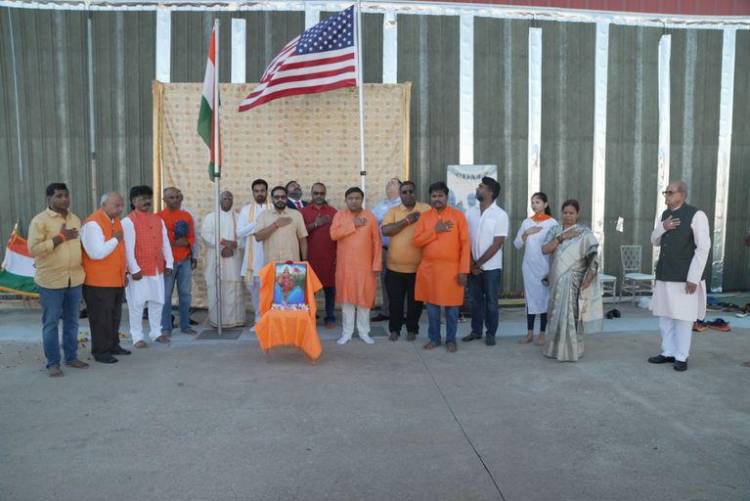 Namaste.
Namaste.
(NOTE: I was fortunate to attend two flag hoisting ceremonies on August 15, and also on August 16. Summary of this speech was delivered in these celebrations)
Today, we proudly gather to celebrate the 78th anniversary of India’s Independence. August 15, 1947, marked the end of 200 years of colonial rule—a moment of immense pride and sacrifice. Our tricolor unfurled against the sky was not just a flag, but a symbol of our hard-won dignity and self-respect.
Many freedom fighters sacrificed their lives for our freedom. It is our duty to remember them and work hard for our country’s progress. Let us promise to be good citizens and make our nation proud. Let us salute the heroes, honor the martyrs, commit to preserve our Sanatana dharma, and pledge to protect our motherland with unshakable resolve.
We remember with gratitude the tireless efforts of Netaji Subhas Chandra Bose, Sardar Vallabhbhai Patel, Bhagat Singh, Chandrasekhar Azad, Khudiram Bose, Sukhdev Thapar, Shivram Rajguru, Udham Singh, Veer Savarkar, Nathuram Godse, Rani Lakshmibai, and countless unsung heroes. They gave their lives so that we could stand here today as free people. Their dedication, courage, and love for the country should forever inspire us.
Please remember that our freedom fighters faced inhuman conditions, imprisonment, torture, and even death so that future generations could breathe in free air.
But my dear friends, freedom is not a single moment, it is a continuous journey.
India got Independence, Hindus lost freedom; Minorities have more freedom
Political Freedom Achieved – But for Hindus, freedom is incomplete?
Yes, in 1947 we achieved political independence. We gained the right to elect our leaders, frame our Constitution, and decide our future. Yet, in one vital sphere of life—religion and cultural heritage—our freedom remains incomplete.
For Hindus, the majority community of this ancient land, the right to manage our own temples and religious institutions remains restricted. This is not a well-known fact, but it is one we must acknowledge if we are to complete the vision of true independence.
The British Policy That Continued After Independence
During colonial times, the British often took over Hindu temples under the pretext of ‘mismanagement’ or to control revenues. Instead of restoring them to Hindu society after independence, many state governments retained or even expanded this control through laws such as the Hindu Religious and Charitable Endowments Acts.
This means that in several states—Tamil Nadu, Andhra Pradesh, Karnataka and Kerala—Hindu temples are run not by Hindu devotees, but by government-appointed officials.
Unequal Treatment Under the Law
Let us pause to consider this:
- Mosques are managed by autonomous Wakf Boards under Muslim control.
- Churches are managed by independent Christian trusts.
- But Hindu temples, despite being places of worship for millions, are subject to direct government control.
Article 26 of our Constitution guarantees every religious denomination the right to manage its own affairs. Yet, in practice, this right has been denied to the Hindu community.
Consequences of State Control
Under government management:
- Temple revenues are sometimes diverted to non-Hindu purposes.
- Ancient traditions and customs face interference from political appointees.
- Many temples suffer from poor upkeep, while their funds lie unused or misused.
- Devotees have less say in how their own sacred spaces are maintained.
This is not what our freedom fighters fought for. They did not envision a free India where Hindus, in their own motherland, would be less free in managing their religious institutions than other communities.
A Call to Complete the Journey of Independence
Independence Day is not only about looking back—it is about looking forward. If we wish to honor the sacrifices of our martyrs, we must work towards complete freedom—political, economic, cultural, and religious.
The movement to free Hindu temples from government control is not about politics—it is about justice, equality, and the preservation of our heritage. It is about trusting Hindu society to care for its own sacred institutions, as every other community is allowed to do.
Our Duty as Citizens
Let us pledge today that:
- We will educate our fellow citizens about this unfinished chapter of independence.
- We will support lawful and peaceful efforts to restore temple administration to devotees.
- We will ensure that India’s promise of freedom is equal for all faiths.
Conclusion
In conclusion, let us remember the words of Swami Vivekananda:
“Freedom is the first condition of growth. Without freedom, no progress is possible.”

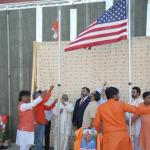
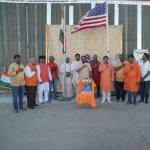
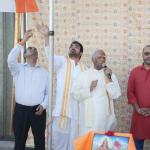

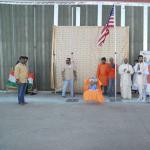
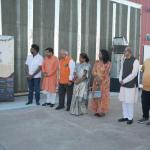
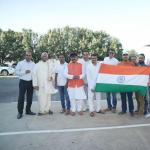

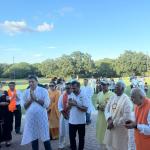
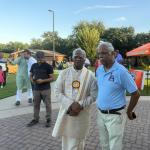
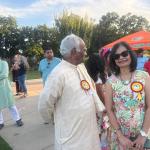

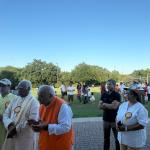











 Urgent support needed for Bangladesh Hindus
Urgent support needed for Bangladesh Hindus 







